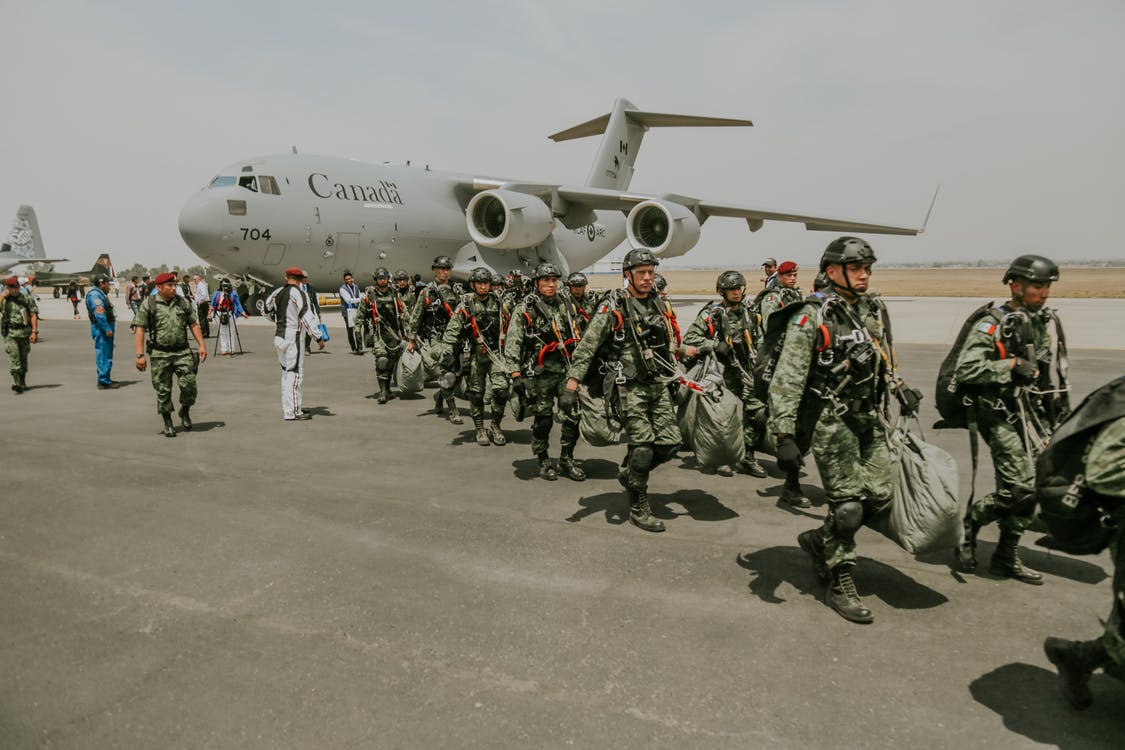You are here
Home 🌿 Recreational Marijuana News 🌿 Canadian survey: Anxiety or stress top reason that Canadian veterans report they are turning to medical cannabis 🌿Canadian survey: Anxiety or stress top reason that Canadian veterans report they are turning to medical cannabis

Just 21 per cent of subjects rated their health as excellent or very good.
An ongoing survey exploring how Canadian veterans use medical marijuana has revealed the most common mode of administration is cannabis oils and that stress/anxiety is the top reason for veterans seeking relief
As part of the CannCorps Health Promotion Program for Medical Cannabis Users study, lead researcher McGill University reports anxiety or stress has proved the most common medical reason for using cannabis to date. That is followed by post-traumatic stress disorder (PTSD), cited by 40 per cent of respondents, and arthritis, noted by 36 per cent.
The reported conditions are in line with what U.S. figures are indicating. According to the U.S. Department of Veterans Affairs, “a number of factors are associated with increased risk of cannabis use, including diagnosis of mental health problems such as PTSD, anxiety disorders, mood disorders and other substance use disorders.”
“All treatment groups, including placebo, showed good tolerability and significant improvements in PTSD symptoms during three weeks of treatment, but no active treatment statistically outperformed placebo in this brief, preliminary trial,” write study authors.
With regard to the Canadian survey, some of the other common health conditions cited by survey participants included problems sleeping and chronic pain. Indeed, 58 per cent of people pointed to “regular pain that was severe enough to limit their daily activities.”
More generally, but perhaps more worrisome, was the fact that just 21 per cent of subjects rated their health as excellent or very good. That was half as many as the 44 per cent of respondents who characterized their health as fair or poor.
At 61 per cent, oils were the most common way that veterans consumed medical marijuana, but edibles were not far behind at 54 per cent and smoking was considerably behind at 28 per cent.
Beyond cannabis, CHIP reports that some participants are using things like regular exercise, mindful relaxation and yoga, healthy eating and massage therapy to customize treatment of their chronic medical conditions.
The information is important given that the goal of the CannCorps study “is to design and test an online health promotion program that Canadian veterans and other medical cannabis users can incorporate into their disease management strategies to optimize the control of their symptoms.”
CHIP encourages all users of medical marijuana to provide their input regarding their experiences with the plant.
At the end of it all, survey input will be used to develop a free, secure and private web-based program that is expected to go live in winter 2022.
Cannabis has been shown to help with certain conditions, so much so that five years ago, Veteran Affairs Canada developed a reimbursement policy for cannabis for medical purposes.
In the summer of 2020, Avail Cannabis announced it was looking to launch an observational study about PTSD for which it expected Canadian military veterans to be the focus. The company planned to apply for ethics approval of the study aimed at identifying “the optimal cannabinoid profile and therapeutic dose of medical cannabis oil” for military veterans with PTSD.
And just last month, Nova Scotia-based Aqualitas Inc. launched a new service aimed at educating, assisting and onboarding veterans from across the country into the company’s online medical cannabis platform.
420 Intel is Your Source for Marijuana News
420 Intel Canada is your leading news source for the Canadian cannabis industry. Get the latest updates on Canadian cannabis stocks and developments on how Canada continues to be a major player in the worldwide recreational and medical cannabis industry.
420 Intel Canada is the Canadian Industry news outlet that will keep you updated on how these Canadian developments in recreational and medical marijuana will impact the country and the world. Our commitment is to bring you the most important cannabis news stories from across Canada every day of the week.
Marijuana industry news is a constant endeavor with new developments each day. For marijuana news across the True North, 420 Intel Canada promises to bring you quality, Canadian, cannabis industry news.
You can get 420 Intel news delivered directly to your inbox by signing up for our daily marijuana news, ensuring you’re always kept up to date on the ever-changing cannabis industry. To stay even better informed about marijuana legalization news follow us on Twitter, Facebook and LinkedIn.




